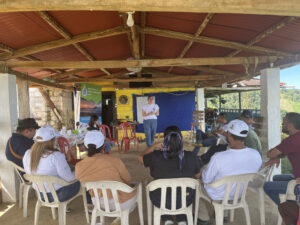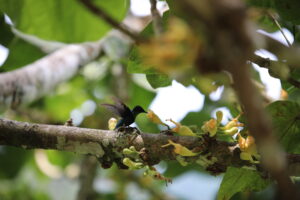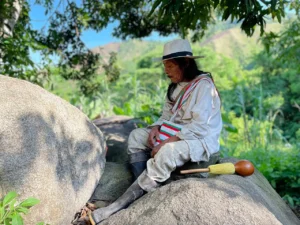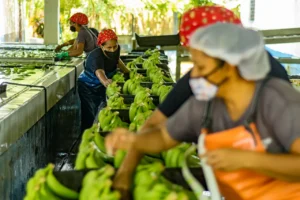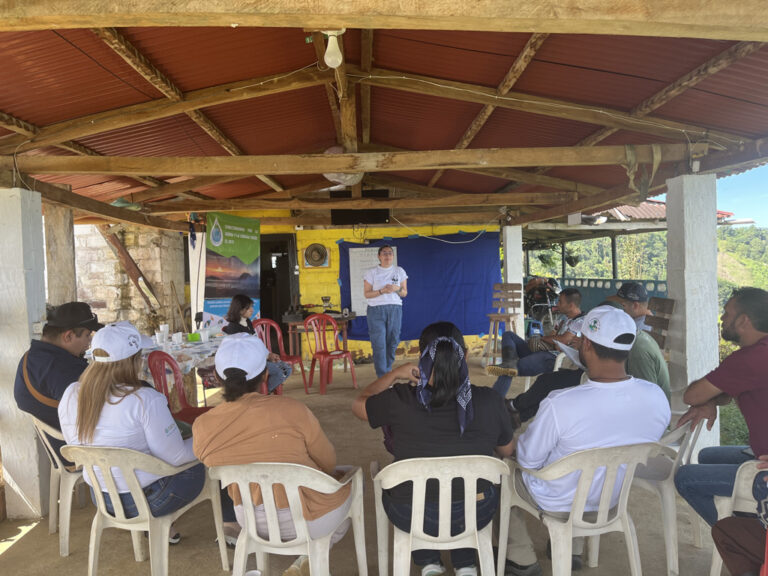Objective
To improve water use efficiency and reduce emissions in specific sectors, in order to preserve ecosystems and their biodiversity in the watersheds that link the Sierra Nevada with the Ciénaga Grande de Santa Marta. We also seek to generate market value and obtain commercial, economic, and reputational benefits for the coffee, banana, and palm agroindustrial activities.
Project Implementation Locations
Municipalities of Ciénaga, Zona Bananera, Aracataca, and Fundación in the Department of Magdalena.
Duration
3 years
Proposal Summary
This proposal focuses on defining water and carbon footprint baselines for the production, marketing, and port delivery of bananas, palm, and coffee. It also includes the development of an Integrated Management Plan, which includes the identification of critical points, sectoral targets for water and emissions reduction, as well as specific actions to reduce the water footprint and mitigate climate change at the production and watershed levels.
The plan is complemented by ongoing monitoring to evaluate the impact of implemented actions and track sectoral goals. Capacity-building and awareness-raising processes are also proposed for producers and marketers in the banana, palm, and coffee sectors.
Expected Benefits
In the medium term, our proposal seeks to generate significant benefits by contributing to the achievement of the 2030 national goal of reducing the carbon footprint by 50% (National NDC Target). In the long term, we project that the coffee, banana, and palm sectors will achieve carbon neutrality by 2050, thus generating lasting positive impacts on environmental sustainability.
In addition, we plan to agree on specific targets for reducing water use, which will strengthen the efficient management of this vital resource. These commitments reflect a comprehensive approach to reaping long-term benefits.


